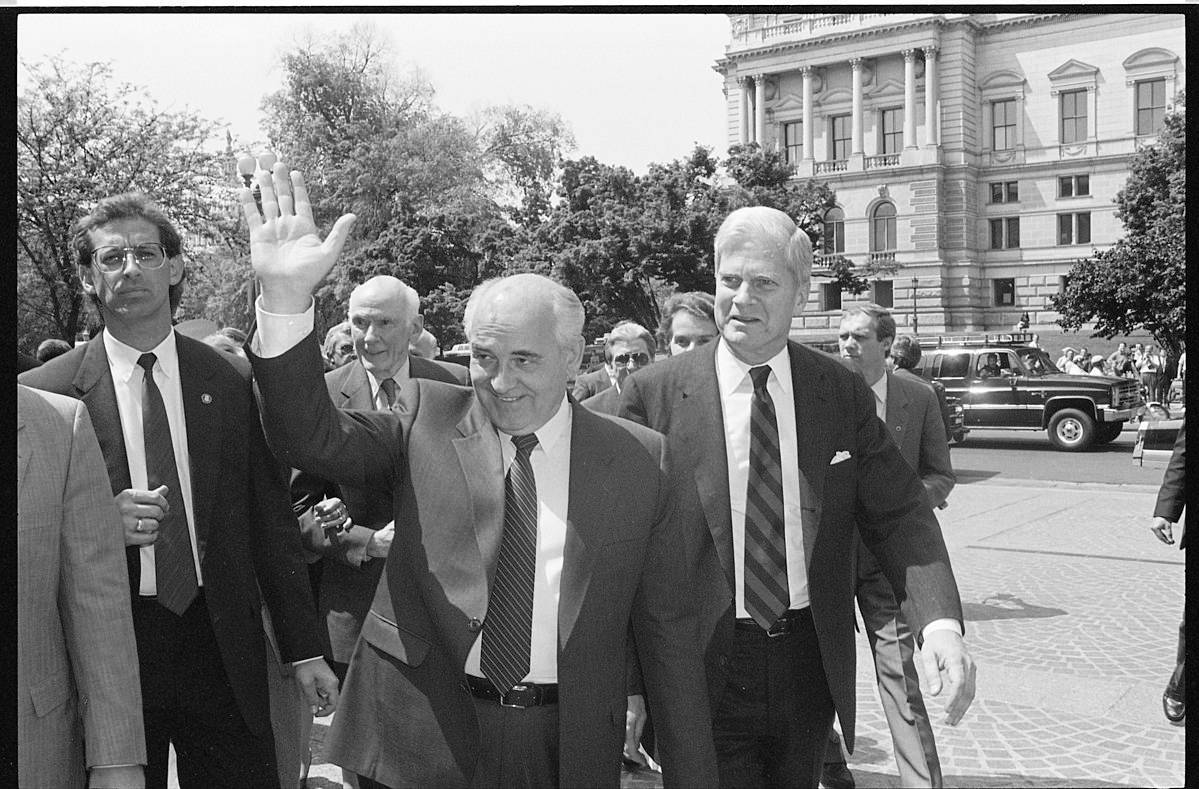What happened to liberalism? Reflecting on Gorbachev

Gorbachev visiting the U.S. Capitol in 1992.
Jonah Carlson - Mikhail Gorbachev’s recent passing at the age of 91 has encouraged reflection on the Soviet Union and the post-Soviet liberal order. Roger Cohen’s reflection on the Soviet premier’s life reexamines Gorbachev’s liberalizing reforms and the West’s ideological power in this era.
Ideological power focuses on shaping international and public perspectives of what is and is not possible. Following the fall of the Berlin Wall in 1989, the Western allies gained a significant boost in ideological power. Gorbachev’s liberalizing reforms through glasnost and perestroika led to the collapse of communism in Europe and a seeming conclusion to the century’s ideological conflict. The end of the Cold War even encouraged political scientist Francis Fukuyama to declare “the end of history,” shaping academic opinion on the ideological future of the globe. World over, millions of people believed liberalism had won for good. The West found its ideological victory, and its stance, to be undefeatable.
Yet in light of today’s conflicts, that confidence appears more like arrogance. “Europe became whole thanks to Mr. Gorbachev,” Cohen writes. “It is less clear what the West gave in return.” While Gorbachev’s administration liberalized an empire, Western Europe’s post-Soviet geopolitical code was hesitant to Russia’s changes at best and threatening at worst. The West failed to promote the liberal values it aimed to protect, especially by focusing too heavily on military security instead of on cooperation. Such actions undermined their own ideological power and encouraged the slow resurgence of authoritarianism. Today we see Russia once again under an authoritarian ruler who has reintroduced warfare to Europe; across the globe, we see the basic tenants of liberalism criticized and questioned abroad. It’s not the end of history after all.

